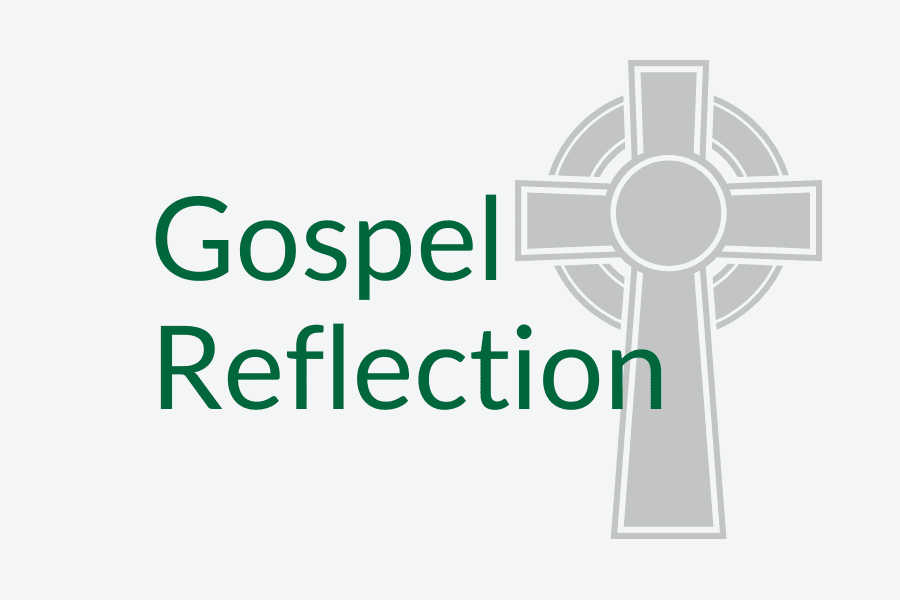Gospel Reflection June 9 – Fr. Black
Sunday, June 9
Tenth Sunday in Ordinary Time
Mark 30: 20-35
Gospel:
Jesus came home with his disciples.
Again the crowd gathered,
making it impossible for them even to eat.
When his relatives heard of this they set out to seize him,
for they said, “He is out of his mind.”
The scribes who had come from Jerusalem said,
“He is possessed by Beelzebul,”
and “By the prince of demons he drives out demons.”
Summoning them, he began to speak to them in parables,
“How can Satan drive out Satan?
If a kingdom is divided against itself,
that kingdom cannot stand.
And if a house is divided against itself,
that house will not be able to stand.
And if Satan has risen up against himself
and is divided, he cannot stand;
that is the end of him.
But no one can enter a strong man’s house to plunder his property
unless he first ties up the strong man.
Then he can plunder the house.
Amen, I say to you,
all sins and all blasphemies that people utter will be
forgiven them.
But whoever blasphemes against the Holy Spirit
will never have forgiveness,
but is guilty of an everlasting sin.”
For they had said, “He has an unclean spirit.”
His mother and his brothers arrived.
Standing outside they sent word to him and called him.
A crowd seated around him told him,
“Your mother and your brothers and your sisters
are outside asking for you.”
But he said to them in reply,
“Who are my mother and my brothers?”
And looking around at those seated in the circle he said,
“Here are my mother and my brothers.
For whoever does the will of God
is my brother and sister and mother.”
Gospel Reflection:
Our gospel this week moves very quickly! In the early verses, Jesus is misunderstood as being out of his mind, or worse yet, by the scribes as being possessed. Jesus’ response is not defensive or accusatory. Rather He speaks of the importance of unity. He uses the image of a family’s house. He says “if a house is divided against itself, the house will not be able to stand.” Their disagreement as to the state of Jesus’ mind could have easily divided them. Instead, Jesus uses it as an opportunity to heal and unite. Then, almost as if it were planned, His own relatives arrived at His door. Jesus, once again, unites rather than divides. He extended the concept of mother and brother by teaching them that whoever does the will of God is my brother and sister and mother. By presenting this challenge to the people to think differently about how we see one another, He helps us avoid those quick opportunities for division. We can think of ourselves by way of many distinctions, nationalities, interests, or family ties. But when doing the will of God is seen as what unites us most, division will remain far away.
Father Black

